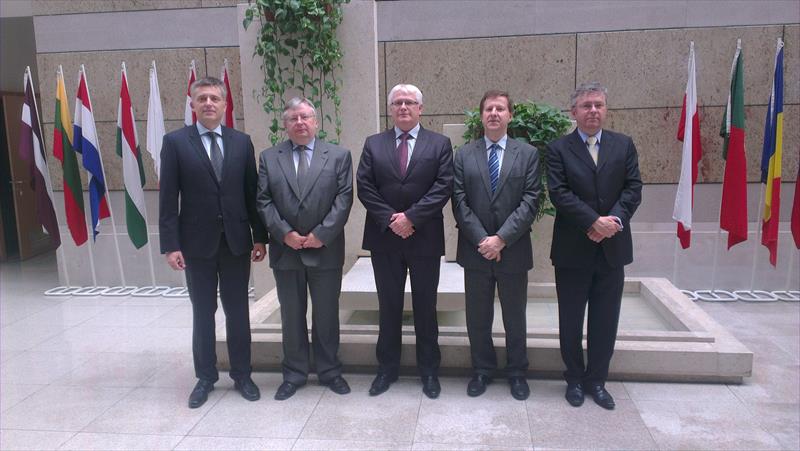The Czech Republic, Hungary, Poland, Slovakia and Slovenia, together with Estonia, Latvia, Lithuania, Malta and Cyprus, mark the 10th anniversary of their joining the EU on 1 May 2014. The accession of these ten countries to the European Union was the biggest enlargement at the time, which increased the number of the member states to 25. Although a 10-year period cannot be considered significant time in historical terms, it does mean a lot on the scale of the experience gained. Moreover, the accession to the EU marked the fulfilment of many years of dreams and efforts of our countries to become an equal part of Europe.
After the change of the regime in 1989-1991, the Central European and Baltic states, with the full support of their societies, defined the importance of joining the Euro-Atlantic organisations as a long cherished goal. This support enjoyed almost undivided political and social support. The accession of our countries to the EU also marked the ultimate end to the division of Europe at the time of the Cold War. As full-fledged members of a re-united Europe, they sought to gain access to all common heritage and were further aware that they were also required to accept the corresponding obligations.
The initial euphoria of the historical moment was followed by long and difficult accession negotiations, which took about 10 years; the government often had to make decisions that did not always enjoy the full support and consent of their citizens or certain groups.
Looking back, it is clear that joining the EU club, despite all the difficulties of the process, was a good decision without an alternative. During the accession process, the EU ensured significant funding of the implementation of the required economic reforms – in the period 1990-2004, it amounted to more than EUR 16 billion for these ten countries. During the economic, infrastructural and environmental investments, serious qualitative changes were brought about in the changed environment, improving modernisation, competitiveness and progress of the new member states. At least that was the impact of the accession process on the building of the rule of law, a democratic legal system and formation of the justice system, including the implementation of human and minority rights.
The accession to the European Union, of course, did not mean an end to all required reforms, or the end of the EU financial support. Even today, all countries that joined the EU in 2004 are net receivers from the EU budget. This means that they pay less into the common budget than is made available to them.
With the membership of the Union, the new members saw the reality of free movement of goods, capital, services and people, which led to the revival of their economies and economic growth. With the abolition of borders, freedom became a concrete, palpable reality, which fully was complemented by the entry in the Schengen area in 2007.
The central European countries have been consistent in their efforts and support for further enlargement of the European Union and re-union of Europe. We all believe that Europe cannot be complete without the countries of the Western Balkans, including Bosnia and Herzegovina. The integration of Bosnia and Herzegovina into the Union is the country’s exclusive guarantee for its sovereignty, integrity, development and modernisation. We are ready to provide all necessary support for new successful initiation and implementation of the integration process, as well as the fulfilment of the implementation of the necessary reforms. We wish to give our contribution to Bosnia and Herzegovina being adequately equipped to benefit from all advantages of the full membership and fulfil its obligations.
The accession process – and resolving the problems currently blocking it – requires full awareness, action and full openness of the leadership and society of Bosnia and Herzegovina and for every BiH citizen individually this implies stamina and determination. We truly wish that Bosnia and Herzegovina, by accepting the challenges, would become a full member of the European family as soon as possible.




